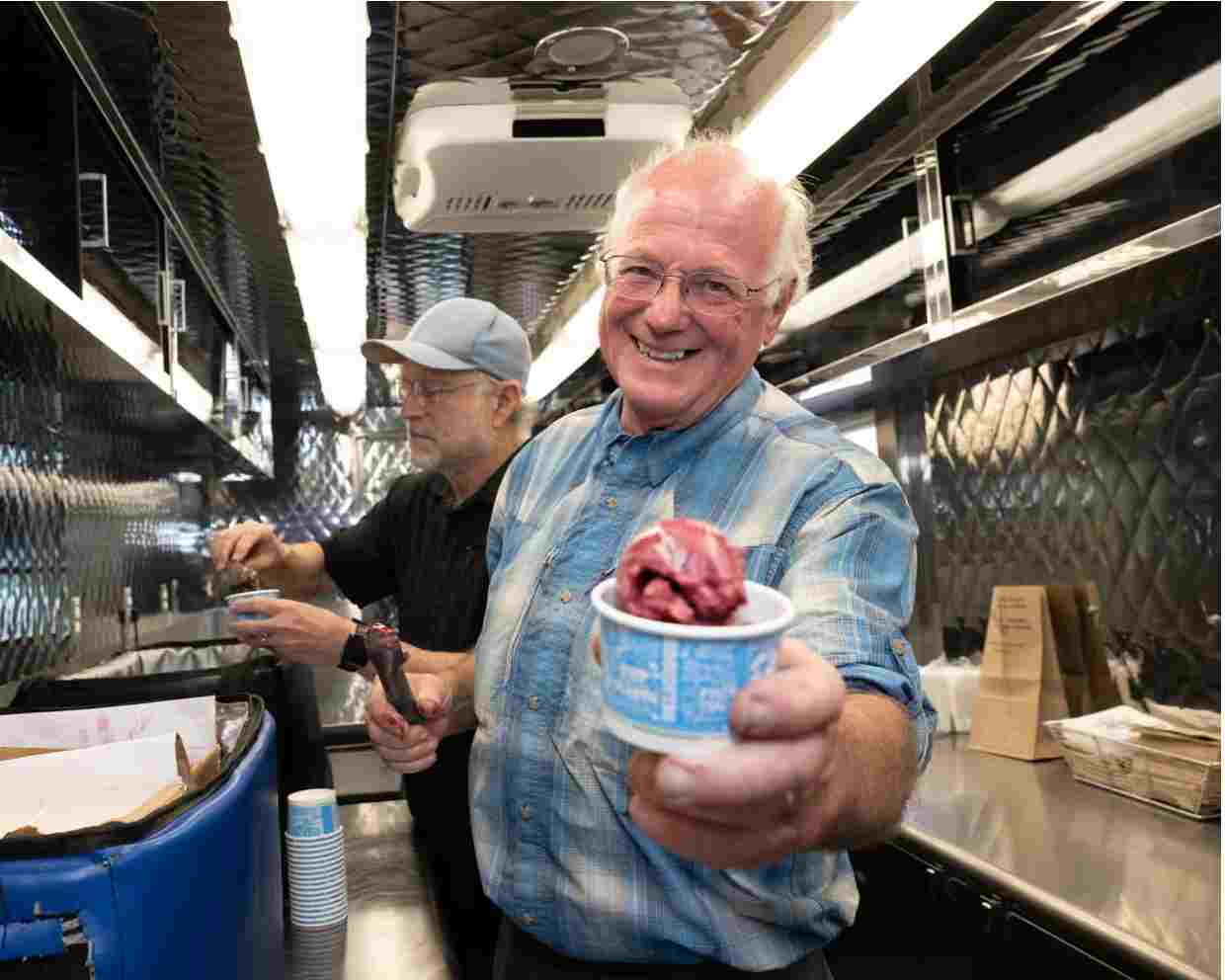
Co-founder accuses ice cream brand’s parent company of participating in Donald Trump’s ‘corporate ass-kissing’
The co-founder of Ben & Jerry’s accused its owner of being part of a “corporate pandering” movement for Donald Trump and said management blocked the ice cream brand from producing a flavor in support of peace in Gaza.
Ben Cohen told the Guardian that Unilever was carrying out a “corporate attack on freedom of expression” by blocking the development of a special flavor in solidarity with the Palestinian people. The flavor is believed to have been approved by Ben & Jerry’s independent board and first discussed about a year ago.
Magnum, the group’s ice cream division, confirmed that it did not go ahead with the council’s suggestion of a Palestinian product this summer.
Cohen launched a “Free Ben & Jerry’s” campaign to persuade Unilever to sell the brand to a group of socially conscious investors who he said have committed to allowing the brand to continue its “social mission.”
With an increasingly authoritarian Trump in the White House, Cohen says now is the time for “businesses and everyone who believes in justice, freedom and peace to stand up. This is the time when Ben & Jerry’s most needs to raise its voice.”
“It seems like since Trump was elected, everything he’s against, DEI, black history, protesters’ rights to free speech, all of those things have been censored.”
Previous Ben & Jerry’s flavors with an activist bent have included “Save Our Swirled” to highlight the need for action at the 2015 Paris climate summits, “I Dough, I Dough” to celebrate the legalization of same-sex marriage at the federal level in the US and “Home Sweet Honeycomb” in support of refugee resettlement in Europe.
Cohen’s criticism is the latest blow in the bitter dispute between the brand’s founders and owners. Unilever plans to spin off Magnum Ice Cream Company into a separate company, which it hopes to list in Amsterdam, with secondary listings in London and New York.
Those plans were delayed this week due to the U.S. government shutdown, though they could continue through the end of the year. Unilever said it remains confident in implementing its demerger plans this year.
Unilever and Magnum said Ben & Jerry’s was “not for sale.”
Magnum said: “Ben & Jerry’s independent board members are not, and have never been, responsible for Ben & Jerry’s business strategy and execution.”
Referring to the proposed pro-Palestinian flavor, a spokesperson said: “The recommendations are being considered by Ben & Jerry’s leadership, and management has determined that the time is not right to invest in the development of this product.”
The company said Ben & Jerry’s was focused on “campaigns close to its communities”, such as better accommodation conditions for refugees in the UK and campaigns defending the First Amendment and free speech in the US.
Magnum added: “We remain committed to Ben & Jerry’s unique three-part mission – product, economic and social – and look forward to building on its success as an iconic and much-loved brand.”
Unilever, the British owner of consumer brands ranging from Dove soap to Hellmann’s mayonnaise, bought Ben & Jerry’s in 2000 for $326 million, but struck an unusual deal for the ice cream brand to preserve an independent board with the ability to speak out on social justice issues.
The founders argue that Unilever reneged on that promise, particularly in relation to the humanitarian crisis in Gaza, when the Israeli government destroyed much of the territory.
A Unilever spokesperson said: “We have always sought to work constructively with the Ben & Jerry’s teams to ensure we remain true to the original agreement around the progressive, non-partisan social mission.”
Ben & Jerry’s was founded in 1978 by Cohen and Jerry Greenfield after the friends took a $5 correspondence course on ice cream making. They opened their first store in a converted gas station in Burlington, Vermont, with the mission to “promote human rights and dignity.”
At Unilever, the two are officially unpaid employees, with no formal role in the company beyond promoting its values. Cohen remains in that role, but Greenfield resigned from Ben & Jerry’s in September , claiming the company had lost its independence.
Cohen said Ben & Jerry’s was being blocked from “making ice cream with purpose” and promised to create a taste of Palestine solidarity in his own kitchen.
The public is being invited to nominate and help create the flavor in a two-week competition. He suggested the flavor would be based on watermelon, a symbol of solidarity with the Palestinian people.
The ice cream, which would be created in small quantities under his personal brand, Ben’s Best, will not be sold, but is intended to draw attention to the cause of “reconstruction, peace and dignity for the people of the region”. He has used the Ben’s Best brand, created in 2016 to support left-leaning Vermont senator Bernie Sanders, to support various causes.
Ben & Jerry’s has repeatedly clashed with its parent company over Palestinian rights. It refused to sell ice cream in territories occupied by Israel and took legal action against Unilever when it sold the Israeli division of the brand to a local operator. In May, the brand classified Israel’s actions in Gaza as genocide, a description used last month by an independent international commission of inquiry at the United Nations.
Originally published by The Guardian on 10/28/2025
The Porler’s Porler in Jasper Jolly
Source: https://www.ocafezinho.com/2025/10/29/proprietario-da-ben-jerrys-interrompeu-o-desenvolvimento-da-marca-sabor-pela-paz-em-gaza/

